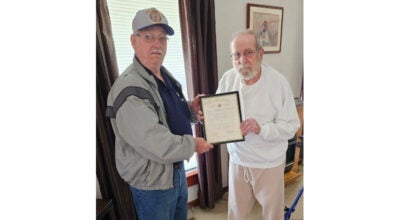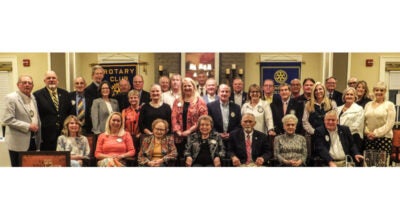Scaffolding
Published 6:35 pm Monday, November 16, 2020
|
Getting your Trinity Audio player ready...
|
By Scott Baker
In the evenings, I spend my time reading. Recently, I’ve been reading Umberto Eco’s novel, “The Name of the Rose.” Many may remember a movie based on the novel staring Sean Connery and Christian Slater, produced way back in 1986. In short, it is a murder mystery set in a 14th century Italian monastery — a classic whodunnit. As with so many books turned to film, much is lost in the translation. As I’ve been making my way through Eco’s novel it has stuck me how much our theology has changed in the intervening 700 years. The novel is peppered throughout with language of the Devil, the Anti-Christ, humors of the brain and superstitions long forgotten. It is set in a world before the Enlightenment, and in a time and culture informed as much by superstition and religion than science and technology. In fact, the protagonist becomes the vanguard of the scientific method into the monastic world, and emblematic of the tide of change about to crash on the European shores at the dawning of the Enlightenment era.
Yet what has struck me is the change in theological language — from then until now. Any mention of the Devil or Anti-Christ now is seldom heard. Which, is not necessarily a bad thing. However, on the other side, our culture isn’t nearly as steeped in scripture and theology as it was once — and not that long ago. What we see in the monks and nuns may be the very pattern Christians can return to in their daily lives. To live lives utterly dependent on God, steeped in holy Scripture, and tempered with regular habitual prayer. Don’t get me wrong — a return to superstitions and cloistered ignorance is not what I’m advocating, but rather, a return to claiming our “otherness” distinct from the world around us. For in being distinct, different, set apart, “in the world but not of the world” means to bear witness with integrity. Something I believe monks and nuns have been doing now for nigh on two millennium.
The Book of Common Prayer paves the way for Episcopalians. Not to say this pattern of life is easy, but rather, that through following the Daily Office in the Prayer Book, one’s life can be centered and grounded in daily, habitual prayer and Scripture. On its most basic level we are setting aside time to be with God. And the rhythm of life that we set in our daily routine in turn becomes formative. As Annie Dillard once wrote, “How we spend our days is, of course, how we spend our lives. What we do with this hour, and that one, is what we are doing. A schedule defends from chaos and whim. It is a net for catching days. It is a scaffolding on which a worker can stand and labor with both hands at sections of time. A schedule is a mock-up of reason and order — willed, faked, and so brought into being; it is a peace and a haven set into the wreck of time, it is a life boat on which you find yourself, decades later, still living.”
The Prayer Book offers two different patterns for such living: one in depth, one simple. Perhaps this is just the pattern we could adopt for an Advent discipline as the new liturgical year unfolds.
THE REV. SCOTT BAKER is the pastor of Emmanuel Episcopal Church. Contact him at 757-562-4542.





